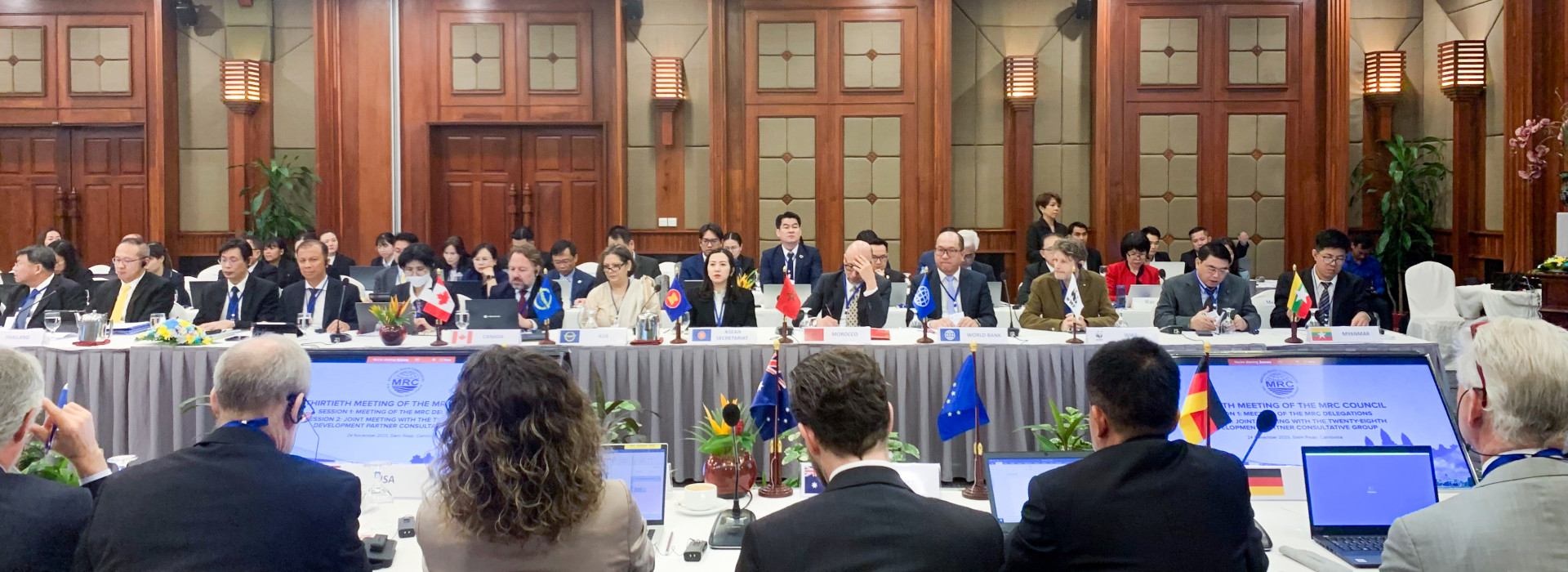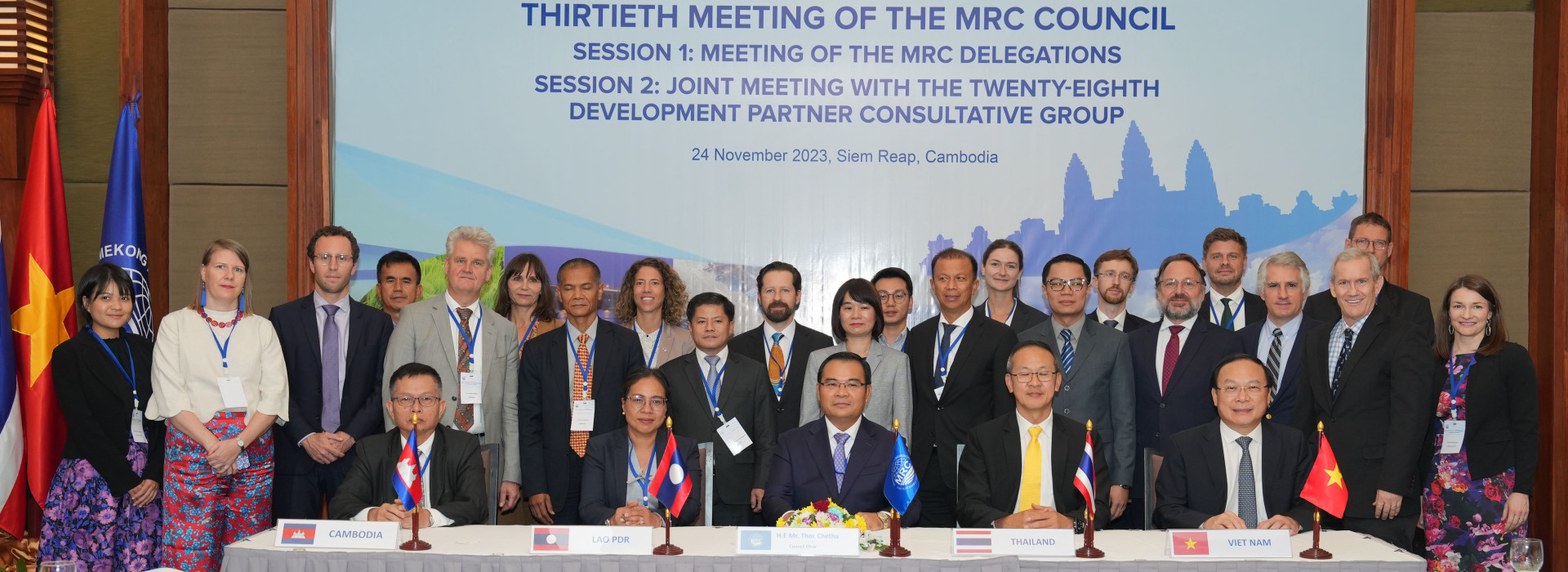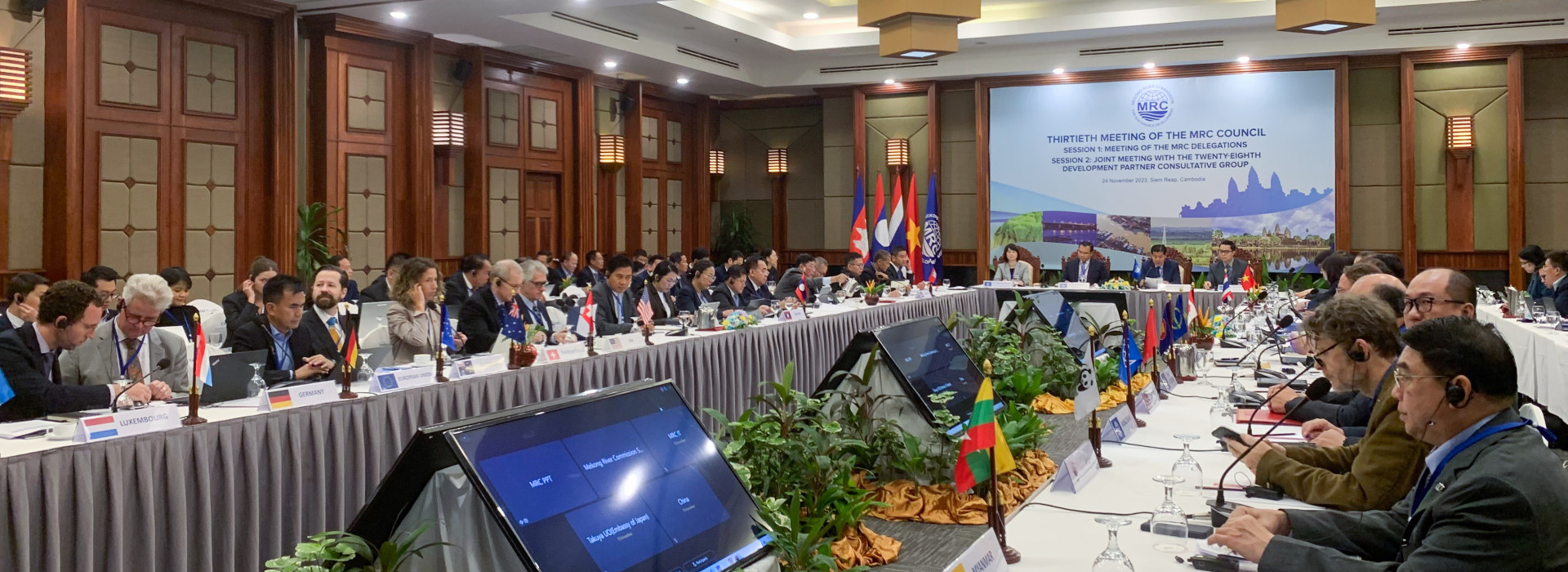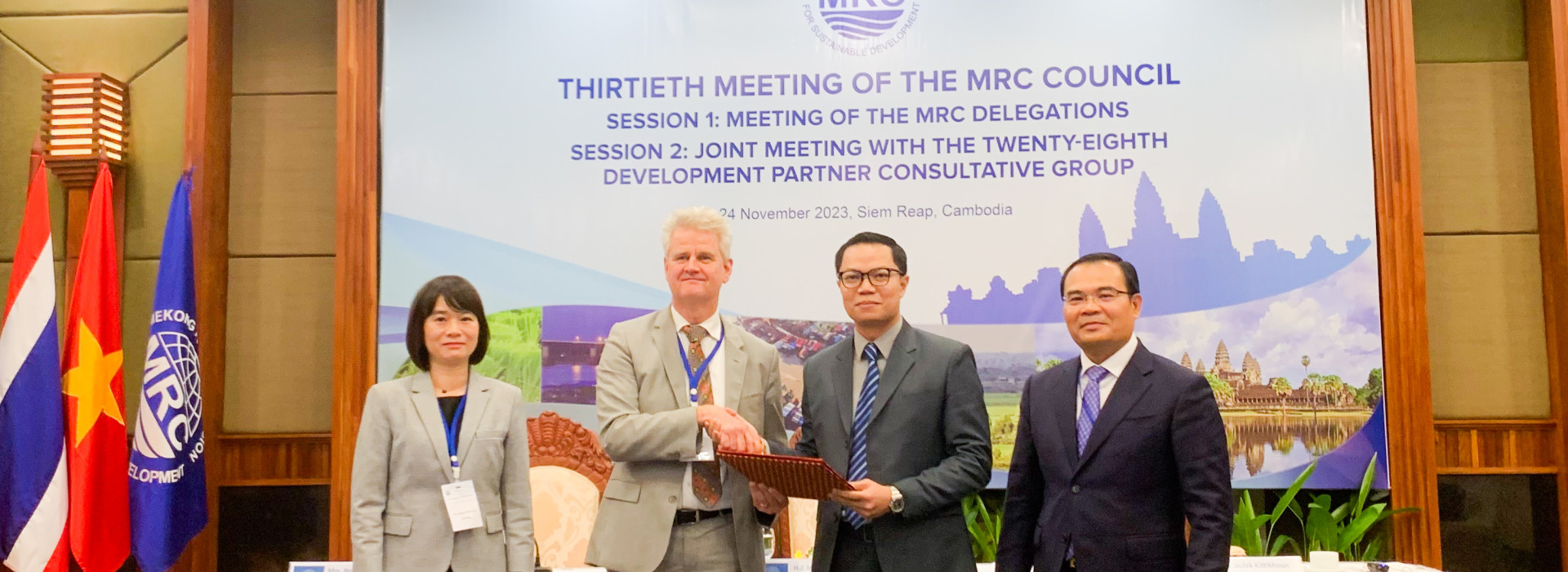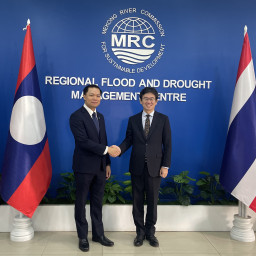Mekong River ministers acknowledge progress in their shared basin, turn focus to remaining challenges
Siem Reap, Cambodia, 29 November 2023 — Amid the growing challenges that development and changing climate pose to Southeast Asia’s largest waterway, the Mekong River Commission’s policy-making body met to review progress, chart a path forwards and re-commit to cooperation.
At the 30th annual meeting of the MRC Council, held 24 November, the focus was on what steps the MRC Secretariat – in conjunction with Member Countries Cambodia, Lao PDR, Thailand and Viet Nam – has taken over the past year to safeguard the Mekong River Basin, and the collective action planned for 2024.
In his address, the MRC Council Chair for 2023, Mr Thor Chetha, expressed appreciation for the “continued financial and technical support” of the MRC’s Development Partners, as well as the “unwavering commitment” of the organization’s upstream Dialogue Partners, China and Myanmar.
Chetha, who is also Cambodia’s Minister of Water Resources and Meteorology and Chair of the Cambodia National Mekong Committee, reiterated the need for a unified approach. The Minister said what the Basin would look like and how it would be shaped in the future would “depend on the extent of our cooperation, forging a common path, performing the strategies set out and creating an actionable plan together.”
The intergovernmental MRC was first established through the 1995 Mekong Agreement, to strike a balance between development of Mekong River water resources and any negative impact that might have on both the environment and the millions of Mekong residents who rely on it for food and livelihood. In recent years, climate change, floods and drought have exacerbated the challenges.
At the MRC Council event, attendees learned of the MRC’s significant recent achievements. They also learned, through the draft State of the Basin Report 2023 (SOBR), how the MRC plans to tackle what the CEO of the MRC Secretariat, Dr Anoulak Kittikhoun, described as the five “alarming” trends now facing the river: water flow regime, nourishing sediment, salinity intrusion, plastics pollution, and climate-driven flood and drought.
As Kittikhoun explained at the Council meeting, the MRC continues to be a forum for water diplomacy: “In the midst of fundamental changes in the global system, we will ensure that the MRC serves as platform for cooperation, not conflict – from our Dialogue Partners to our Development and other partners.”
Meanwhile, the Development Partners (DPs) jointly issued a statement that congratulated the MRC on a “landmark year” of activities that brought the Mekong community together. The statement also underscored the vital need for MRC leadership to continue facilitating cooperation among Member Countries, Dialogue Partners, the DPs, and other stakeholders, in particular to apply innovative tools and technologies to solve Mekong challenges.
“As the Mekong River Basin faces challenges from the impacts of climate change and rapid development, the MRC plays a critical role in urgently advancing effective, innovative, and inclusive approaches to transboundary resource management,” the statement reads.
In addition, the DPs encouraged greater data sharing, by all riverine actors, across the Basin. As they stated, “We welcome the objectives to develop new knowledge and answers to the challenges of changing flow regime, limits of environment assets, and water-energy integration.”
Indeed, the prospects for intensifying cooperation look strong. At the 4th MRC Summit in April, the intergovernmental agency received the highest-possible level commitment of political will: the Prime Ministers of each Member Country signed The Vientiane Declaration, a landmark document that not only reiterates the MRC’s essential role, but lays out seven key priorities that must be addressed to protect the Mekong River, its resources and the riverine communities.
While developing the Mekong’s water resources has brought positive changes and economic prosperity, it has unexpected consequences for the environment and livelihoods of all those who depend on the river. While MRC action aims to balance the pros and cons, another solution will soon come into existence. At the Council event, Germany pledged EUR 15 million to fund the trial implementation of the Ecosystem Window of the eagerly anticipated Mekong Fund, a mechanism that should benefit those residents who are negatively impacted, whether directly or indirectly, by climate change and the development of Southeast Asia’s most important river.
The primary goal of the German commitment under the Ecosystem Window of the Mekong Fund Trial is to establish a grant-making facility, fostering local community engagement in wetland and watershed biodiversity conservation and related livelihoods activities.
Separately at the event, Canada joined the Commission as its latest Development Partner to tackle the Mekong’s broader problems, announcing it would contribute $2 million to the MRC’s general pool of funding.
Including Canada, the MRC now has 13 Development Partners: Australia, Belgium (Flanders), the European Union, France, Germany, Japan, Luxembourg, New Zealand, the Netherlands, Sweden, Switzerland, and the United State of America.
Note to Editors:
The MRC is an intergovernmental organization established in 1995 to boost regional dialogue and cooperation in the Lower Mekong River Basin. Based on the Mekong Agreement among Cambodia, Lao PDR, Thailand and Viet Nam, the MRC serves as both a regional platform for water diplomacy and a knowledge hub – to manage water resources and support sustainable development of the region.
###
